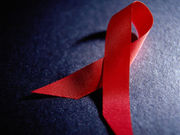But it’s not clear what’s driving the difference in care, researcher says
WEDNESDAY, May 18, 2016 (HealthDay News) — While powerful HIV medications are allowing patients to live longer, these same patients are less likely to get treatment for cancer if it develops, according to a study published online May 17 in Cancer.
Gita Suneja, M.D., assistant professor of radiation oncology at the University of Utah School of Medicine, and colleagues examined a database of people diagnosed with cancer in the United States between 2003 and 2011. The study included 2.2 million cancer patients who did not have HIV and 10,265 cancer patients who were infected with HIV. All participants were younger than 65. Overall, HIV-infected patients were younger (with a median age of 47, compared to 55), more likely to be male (77 versus 48 percent), and much more likely to be black (41 versus 13 percent).
The HIV-infected patients were more likely to suffer from anal cancer and Hodgkin’s lymphoma and much less likely to have breast and prostate cancer. More than 40 percent of the HIV-infected patients had diffuse large B-cell lymphoma; just 2 percent of the other patients did. The differences persisted even when the researchers adjusted their statistics so they wouldn’t be influenced by high or low numbers of people who shared certain factors such as race, gender, and age.
“We found large differences in cancer treatment rates,” Suneja told HealthDay. “For most cancers, HIV-infected patients were two to three times more likely to receive no cancer treatment compared to uninfected people.”
Copyright © 2016 HealthDay. All rights reserved.








